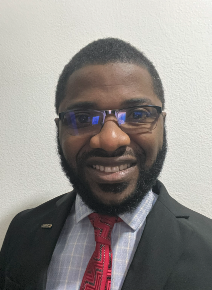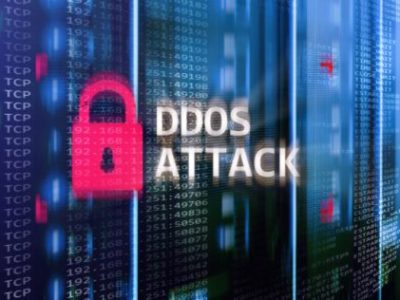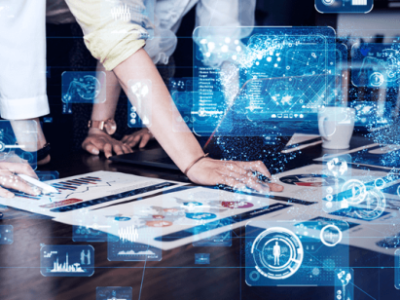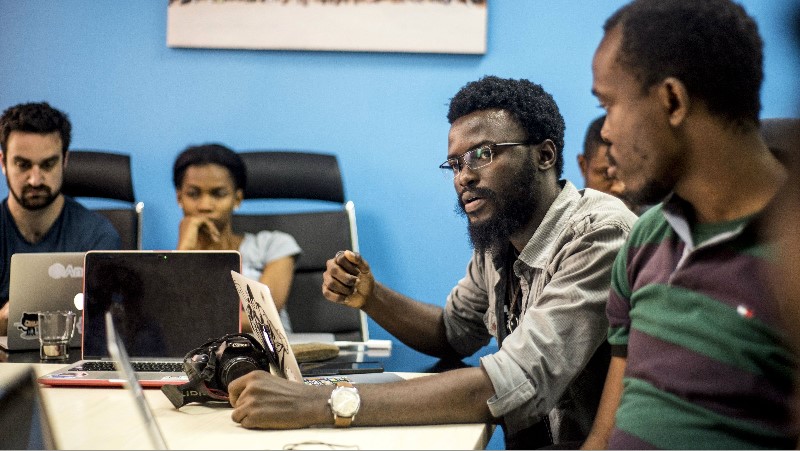Overview
Everyone knows the importance of Microsoft Excel in data analysis and management. In fact, some analysists in the recent past have regarded Excel as one of the most ingenious software applications created due to its versatility and range of use. Imagine, however, a system which collects and analyses complex data more efficiently and faster that Excel.
We therefore introduce to you EMS web application and DataNexus intelligence system. A team of young professionals came together to build an integrated system infusing an AI (DataNexus) which they developed, into a web-application originally developed as one of the few elections monitoring applications in Nigeria.
The trio: Michael Ibe, Melody Ikechukwu Enumah and Benedict Ibe started by creating the EMS (Election Monitoring System) application which can be used to monitor elections, analyse trends during elections, and generates instant robust reports on the findings. Then, they moved on to create an Artificial Intelligence called DataNexus AI which further analyses complex data into simple comprehensible charts and trends. The two technological initiatives have been used to analyse data, particularly in the fields of good governance (elections), peace and conflict researches, socio-cultural studies, amongst others.
Currently, they are at the final stages of fully integrating the platforms into one super online platform which can be used to perform complex functions but can also function separately. The application of the applications in social research activities was led by Dr Michael Ibe – a social scientist and researcher with expertise on socio-cultural conflicts and peacebuilding.
DataNexus AI
Led by Benedict, this AI was created to ensure effortless data querying, automated tasks, real-time insights, enhanced accessibility, and advanced predictive capabilities.
The introduction of this ground-breaking AI tool in March 2023 marked a significant breakthrough in data interaction. The Hugging Face platform and Google’s Gemini model power this application, which transforms the way we access and work with structured data. The DataNexus solution eliminates obstacles by translating technical complexity into straightforward English commands, enabling users to query large databases and analyse complex spreadsheets.
Imagine this: As a company executive, you have no prior experience with coding. This AI can provide thorough insights in a matter of seconds when asked a simple query, such as “What are the quarterly sales trends?” “what is our comparative profit margin for Q2”? It is about opening up a world of opportunities for non-specialists who can now use data like seasoned analysts, not just about convenience.
The Game-Changing Features
This AI tool has been designed to reshape industries, offering:
- Democratized Access to Data: Gone are the days when you needed a team of data scientists to interpret your numbers. DataNexus allows anyone to dive into datasets and make sense of them.
- Enhanced Productivity: Tedious tasks like report generation or complex calculations are now automated, leaving users free to focus on strategic decisions.
- Seamless Integration: With compatibility for platforms like Google Cloud and Azure, and more recently, the EMS, scalability is a breeze.
And the interface? It’s as user-friendly as your favourite chatbot, making sophisticated technology feel intuitive and approachable.
Revolutionizing Peace and Conflict Resolution
The possibilities, however, are not limited to business. This innovative AI is causing a stir in international attempts to promote peace. Access to precise and useful data can make the difference between escalation and resolution in conflict areas. DataNexus is rising in this way:
- Deep Data Analysis: By examining historical and socio-economic data, the AI uncovers the roots of conflicts, offering insights like trends in resource-based disputes.
- Predictive Insights: Analyzing real-time data from social media or government reports, it predicts potential flashpoints, enabling proactive interventions.
- Fostering Dialogue: With its ability to analyze stakeholder positions from policy papers, mediators can identify areas of agreement and disagreement more effectively.
- Empowering Grassroots Efforts: For local organizations often excluded from sophisticated tech, this AI democratizes access, enabling tailored, context-specific solutions.
Challenges and the Road Ahead
There are challenges with this AI, just like with any new technology. Cultural opposition to automation, ethical concerns, and data privacy issues are major concerns. The answer? Governments and organisations working together to make investments in infrastructure, ethics, and education.
DataNexus has the potential to revolutionise data interaction, making it a powerful tool for promoting global development and peace as well as in boardrooms. It’s more than simply artificial intelligence; it’s a window into the future, where data inspires as well as informs.
In a world where information is power, DataNexus hands the keys to everyone. Are we ready to embrace it?
Elections Monitoring System (EMS)
Led by Engr Melody Enumah, the team also developed an online platform for elections monitoring in Nigeria called Elections Monitoring System, sponsored and owned by Caritas Nigeria and Justice Development and Peace Commissions (JDPCs).
How the EMS works…
The web platform is hosted as caritasjdpc.org. The web platform features a form which serves as a checklist. Another form is used for votes results entry for the different elections. All 60 Justice, Development and Peace Commissions (JDPCs) in all Catholic dioceses in the country are duly registered on the application. All JDPCs under a state in Nigeria will independently observe the elections at the state level.
All states are registered on the platform as well. In addition, all polling units across the wards in the state are registered on the platform. At each election, all ‘admins’ at the state level can simply visit the application and set up the observation platform with the dates covered.
“Real-time elections report is generated, collated, analysed and shared with relevant stakeholders.”
This implies that only the JDPC observers registered by the admin under that state can log in to access the features on the platform. Others outside that geographical region may not have access to the platform if they are outside the region covered. By implication, if you are physically outside the Jigawa State, access to the platform for Jigawa State will be restricted, except for immediate response, analysis and action. For federal positions such as the presidential elections, everyone logged into the platform can have access.
For example, during general elections, specifically gubernatorial elections, the observers in Imo State can only have access to the platform covering the state – the same applies to those in Kano, as well as those in Ekiti State. Results and reports can only be generated at the state level, but centrally collated automatically by a designated ‘general admin’ in the situation room. The general admin generates trends, analytics, and hotspots. A real-time elections report is generated, collated, analysed and shared with relevant stakeholders.
The reporting platform has options for ‘upcming elections’ and ‘ongoing elections.’ The Ongoing elections option allows the user to fill-in the elections checklist. Under the checklist, the user will be required to specify the ward and polling unit s/he is reporting from. Furthermore, s/he will delineate the reports on arrival of elections materials/officers, voters’ accreditation, voting trends (time of arrival of the voting materials, use of elections technologies such as the BVAS, etc.), (in)security. The checklist is categorized in three sections: pre-elections, elections, and post elections.
‘Upcoming elections’ and ‘ongoing elections’
Each section has its own line of questions to be filled in by the observer. The form being filled in is saved automatically but must be submitted before the end of the day. Albeit, in special cases, an extension on the submission can be done particularly for those observing in remote areas with limited access to the internet. The extension allows them time to enter their observations from the hardcopies onto the platform.
Another major feature is incidence report. This reporting feature allows the user to capture videos, pictures and record voice notes of events, incidents, etc., during the conduct of the election in the specific polling unit. Under the analytics section of the platform, all entries made under the checklist is processed under the aforementioned section.
Comparative reports such as the best performing polling units in terms of arrival, accreditation, security, etc. are here identified. Graphs and charts can be automatically generated, with hotspots identified for immediate response or escalation. The data generated from here can be further sent to the DataNexus AI for more complex analysis. As mentioned earlier, this feature is still being incorporated.
Those at the central control – the Situation Room, receive these reports and coordinate the data, effectively processing them into analytics and generating instant reports. The platform also comes in a mobile application for ease of deployment. After the elections, reports are generated at both the state and national level. This platform was designed in 2019, and was used in the Ekiti elections, and the 2023 general elections.
The Team
Dr Michael Ibe

Dr Michael Ibe is a Program Management Advisor and the Head of Institutional Capacity Strengthening unit with Caritas Nigeria, a national not-for-profit organization dedicated to the mission and service to the poor and most vulnerable. So far, he has led design and execution of successful humanitarian and development interventions that have seen to the improvement of quality of life for over 9.1 million persons. In August 2021, he was appointed as the Chairman of the Humanitarian Reference Group for Caritas Africa – a network of 43 African faith-based not-for-profits. In September 2022, he was elected as the Co-Chair of Humanitarian Committee, Caritas Internationalis, a global network of over 162-member organizations dedicated to humanitarian and development action. In 2023, he was appointed as a Co-Chair of Charter-for-Change working group dedicated to ensuring locally-led responses in Nigeria.
With over 15 years of cognate experience, Michael Ibe holds a Bachelors in Philosophy, a Bachelors in Religious Studies, both from Urbaniana Pontifical University, Rome; a Masters in Peace Studies and currently on the final stages of his academic Doctorates in Peace Studies and Conflict Resolution with National Open University of Nigeria, holds a Doctorates in Peacebuilding and Conflict Studies with African-American University, Benin Republic, and a Professional Doctoral student with Institute for Crisis Resolution, Peacebuilding and Conciliation.
Ikechukwu Nwagbo Enumah (Melody)

An I.T Engineer with strong set of skills and passion for Software Engineering, Cyber Security, and Data Science and AI. With 20 years of experience in I.T, Engr. Enumah has earned B.Eng in Computer Engineering from Enugu State University of Science and Technology, MSc. in Cyber Security from The University of Wolverhampton, England, UK, and MSc. Data Science and AI from Edinburgh Napier University, Scotland, UK.
Benedict Onochie Ibe

An accomplished Data Scientist, Data Analyst and engineer with a M.Sc. in Data Science (DISTINCTION) from the university of Salford, Manchester, Benedict has more than 6 years’ professional experience and has successfully delivered cutting-edge data solutions for clients across Africa (Uganda, Togo, Nigeria) and Europe (UK, Paris, USA). He specializes in machine learning, AI, and data-driven insights, transforming businesses through innovative technologies.































